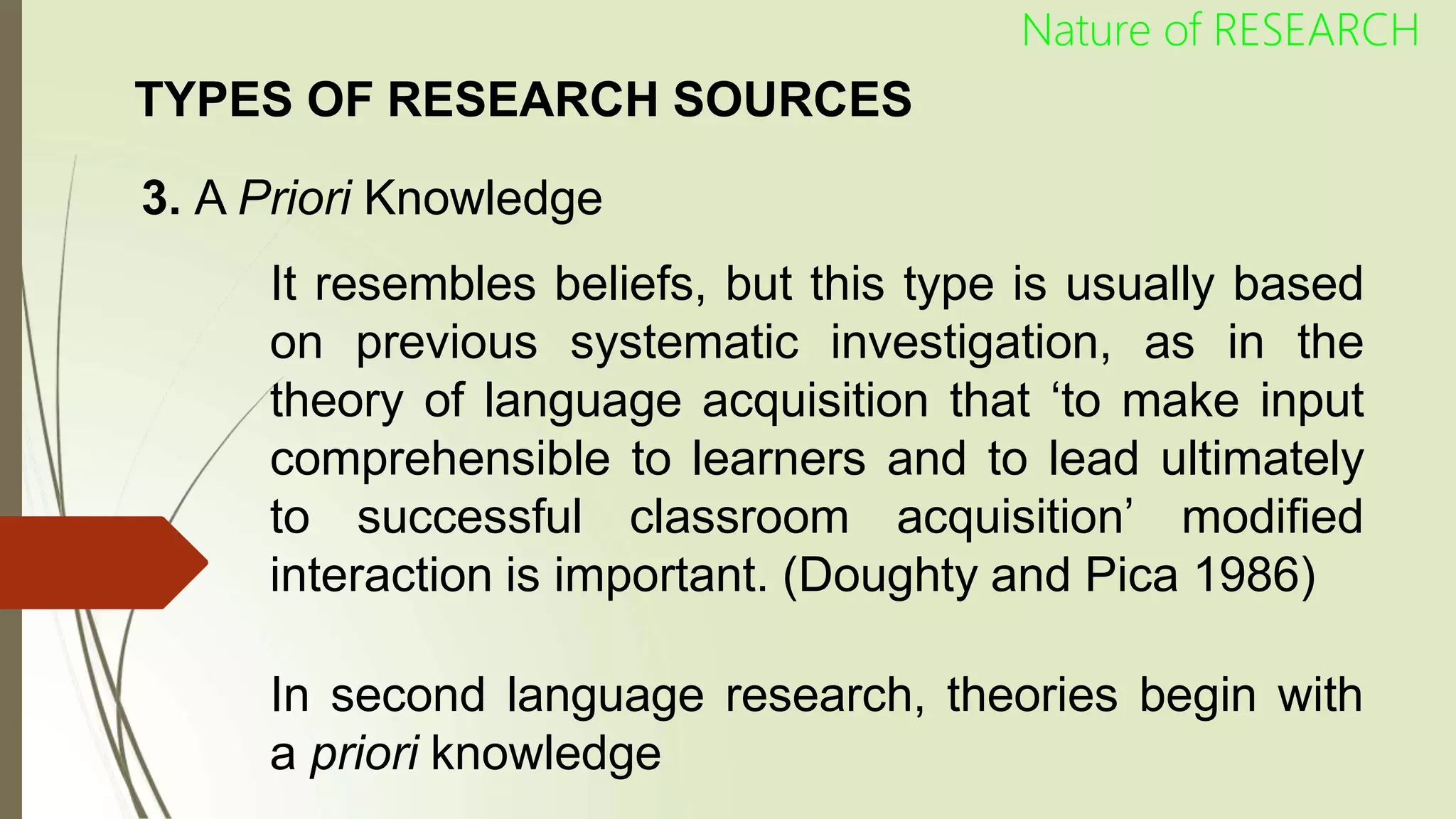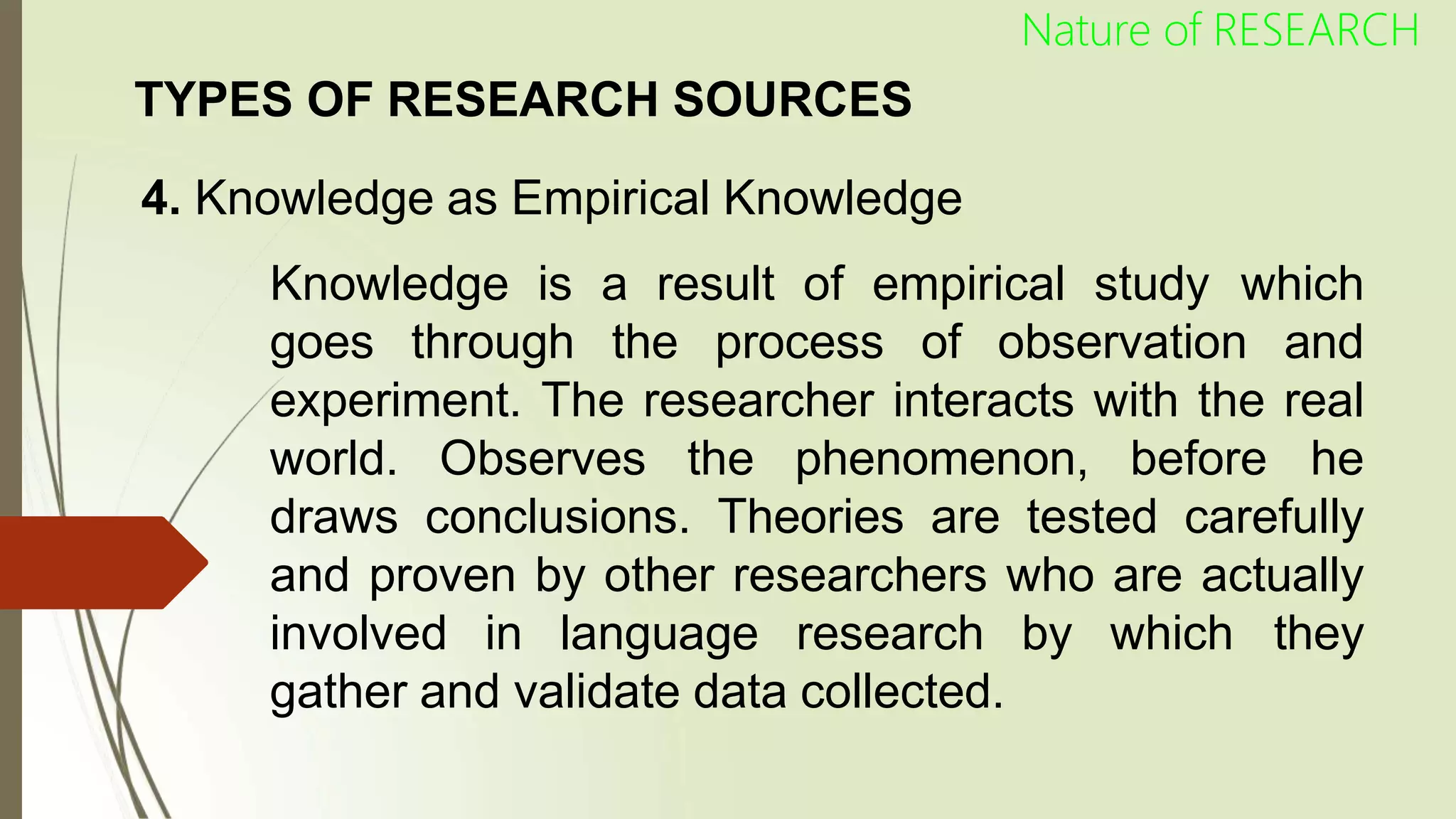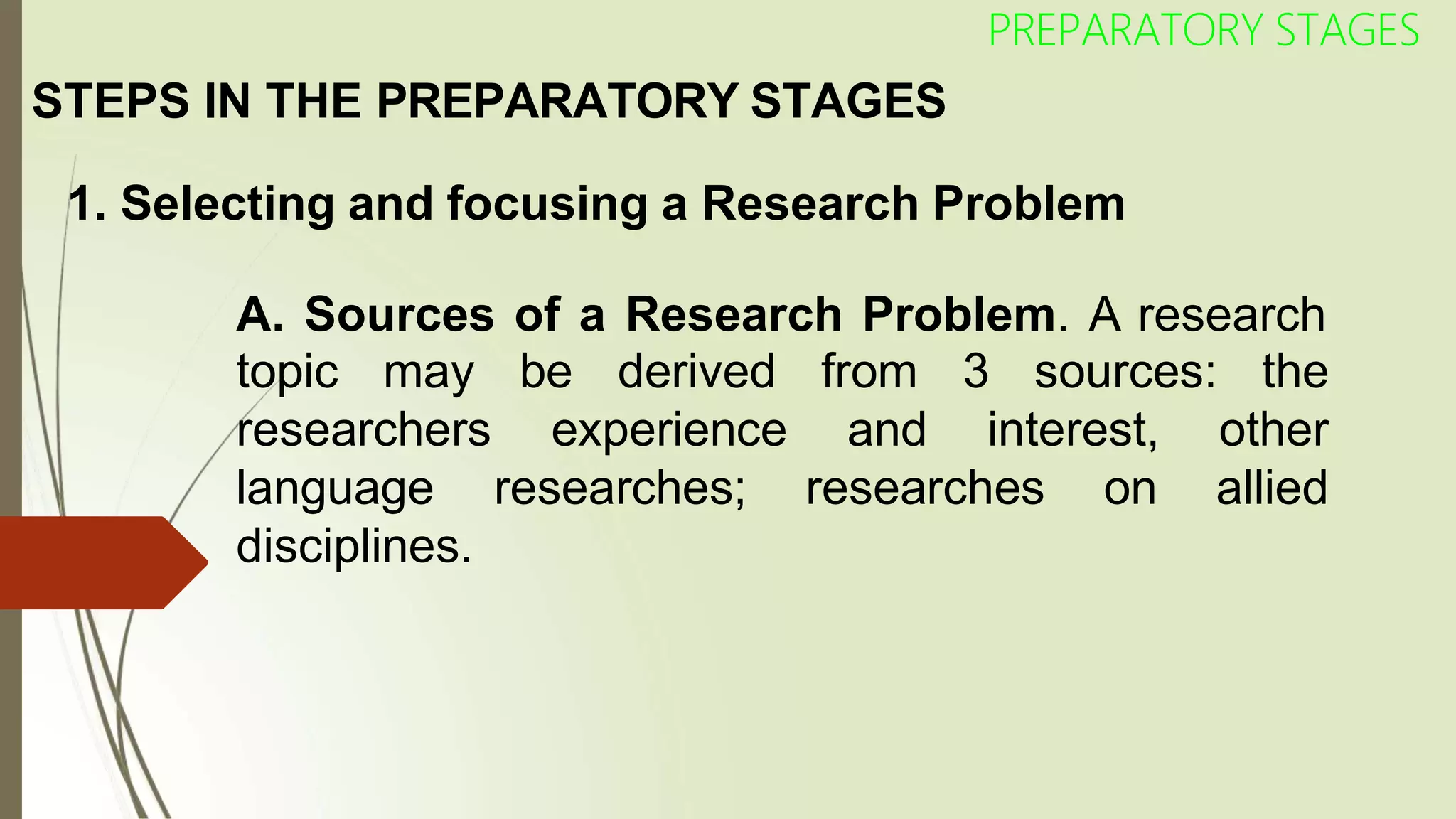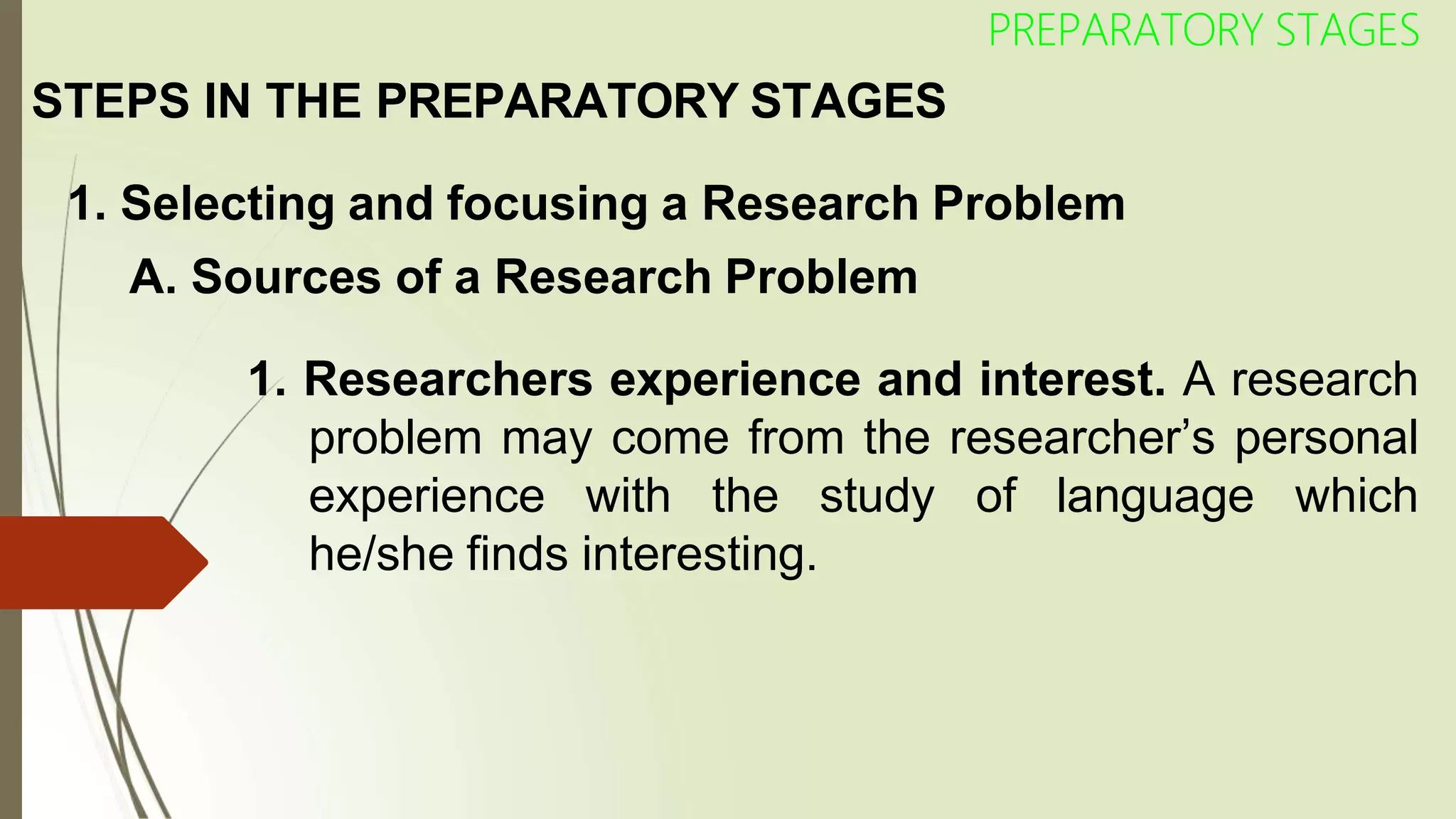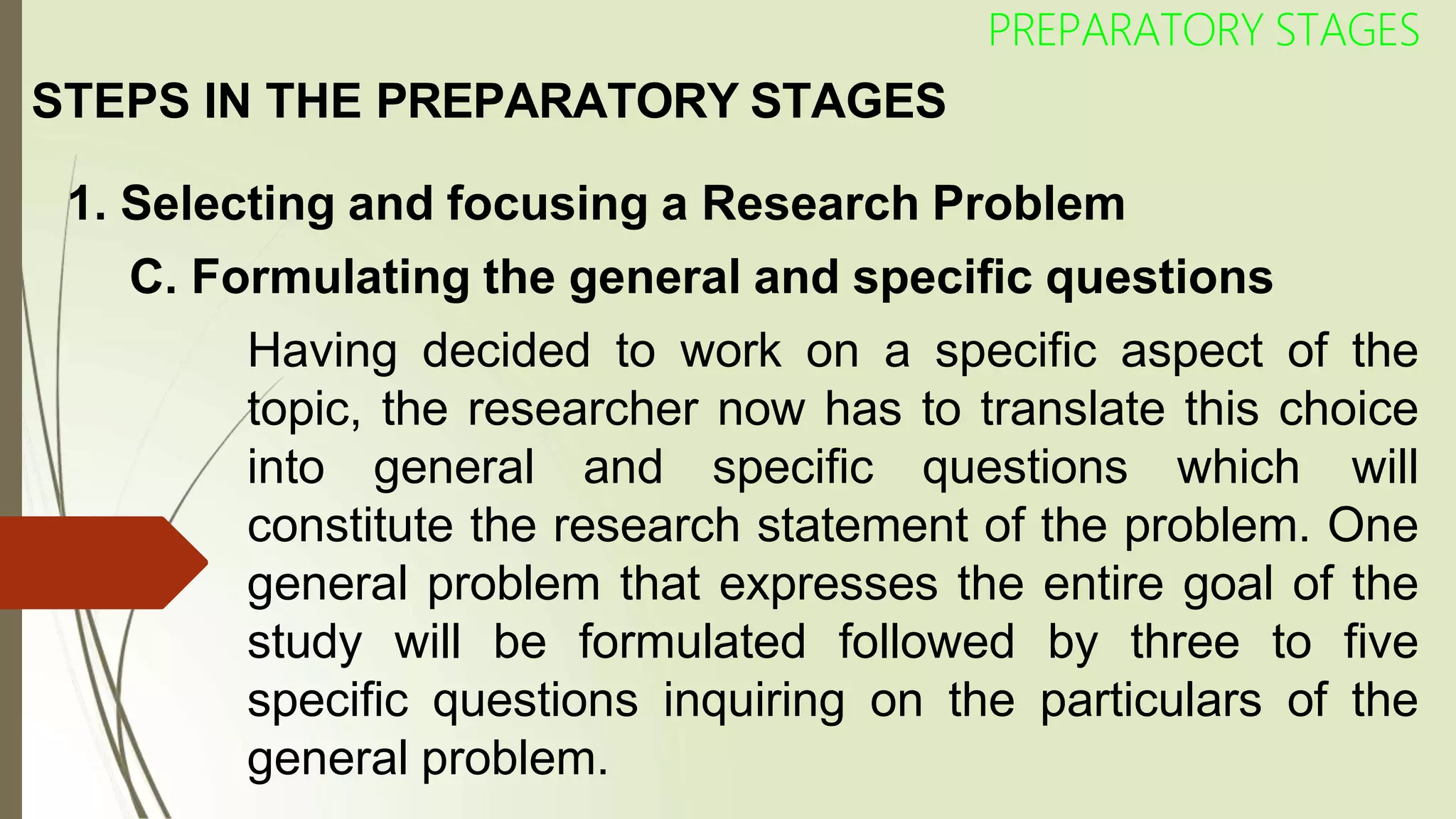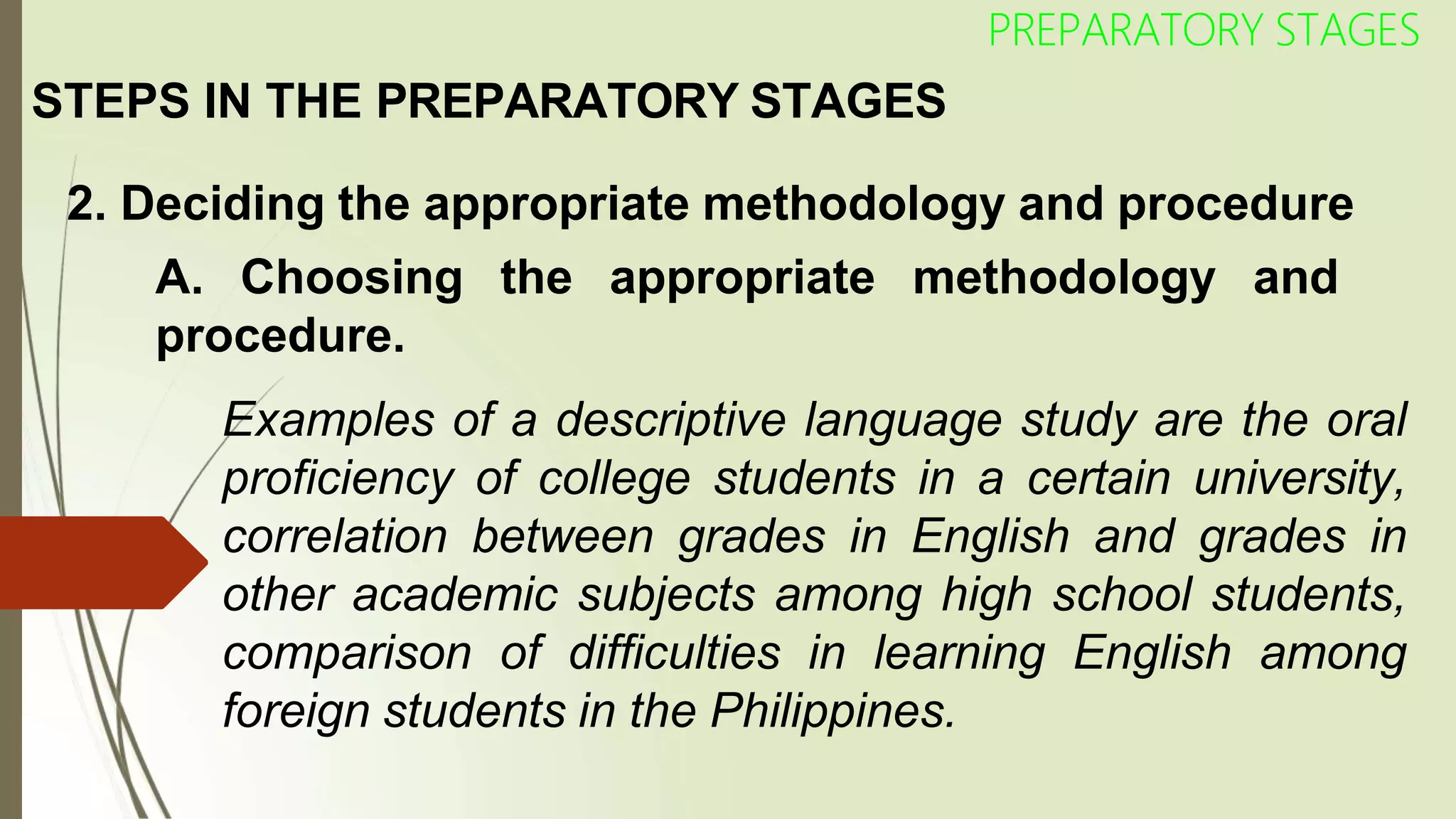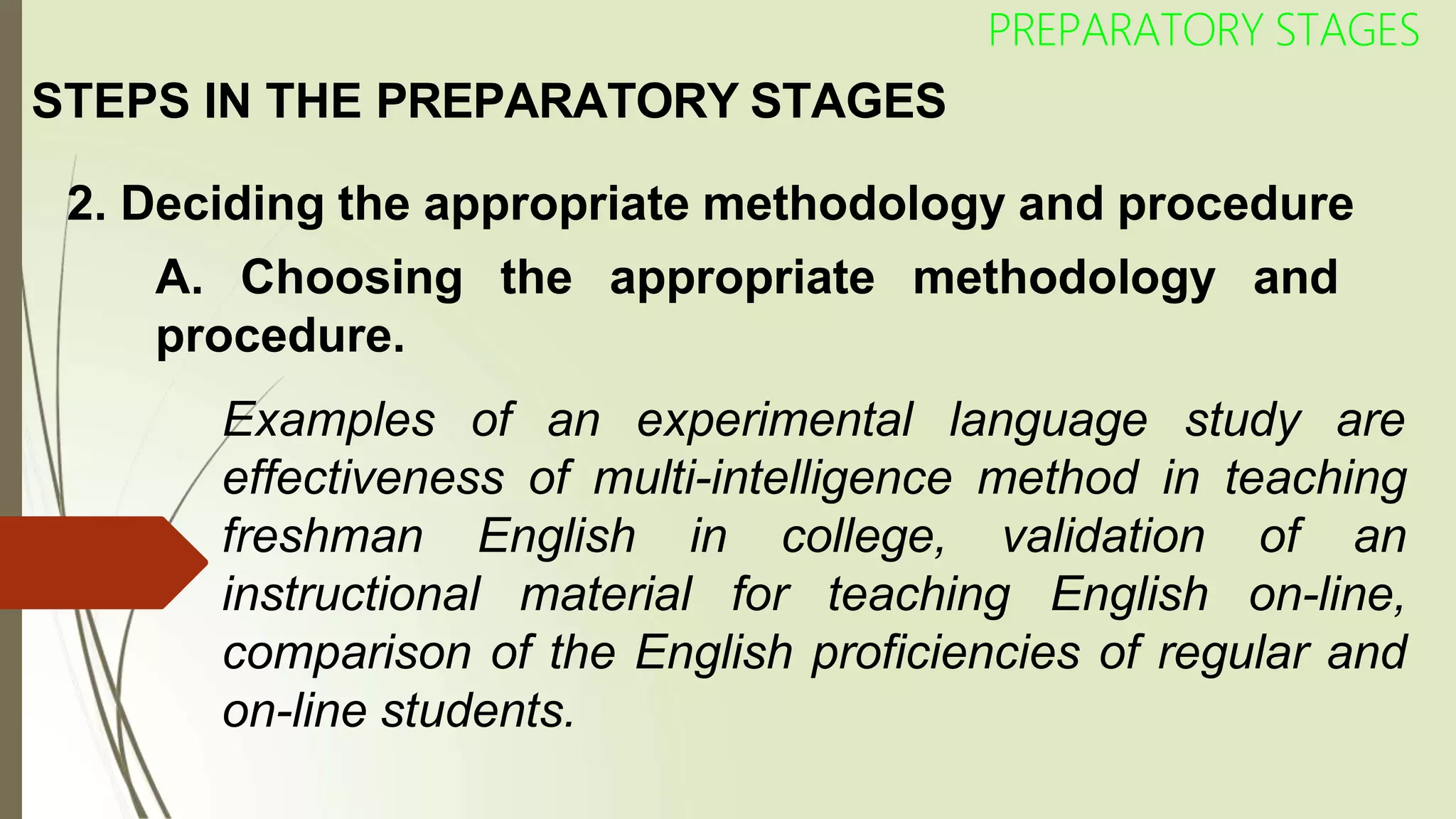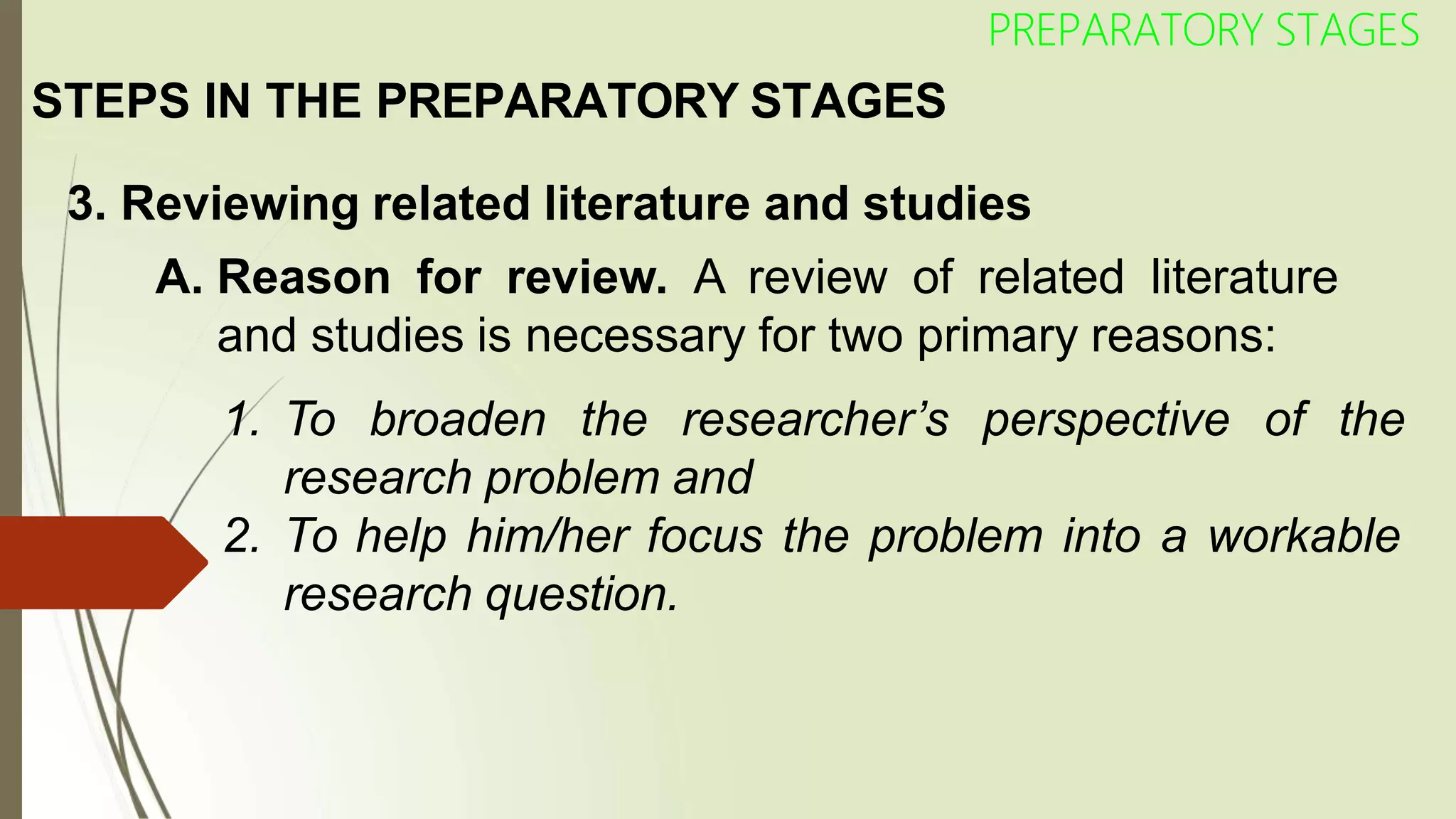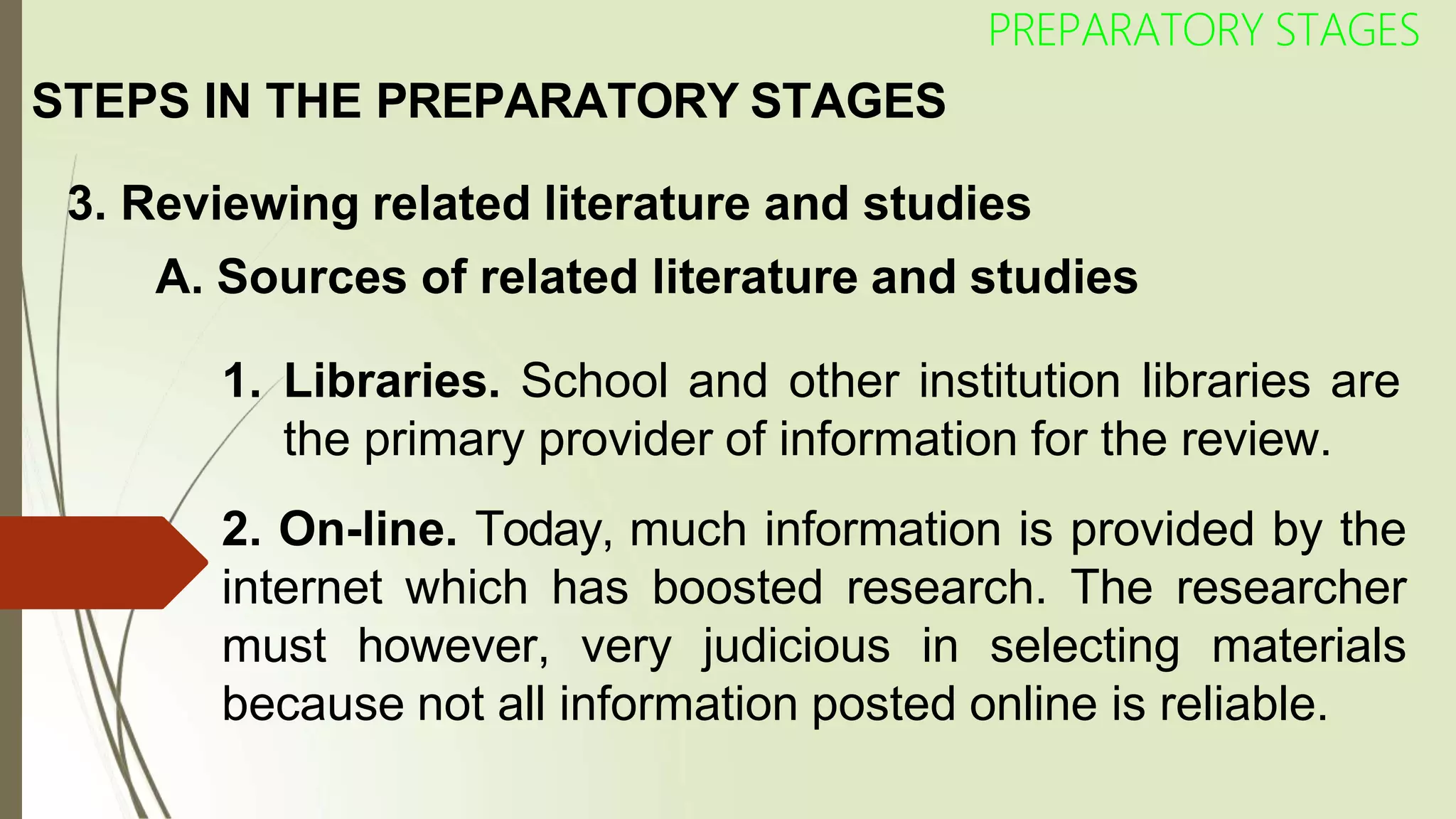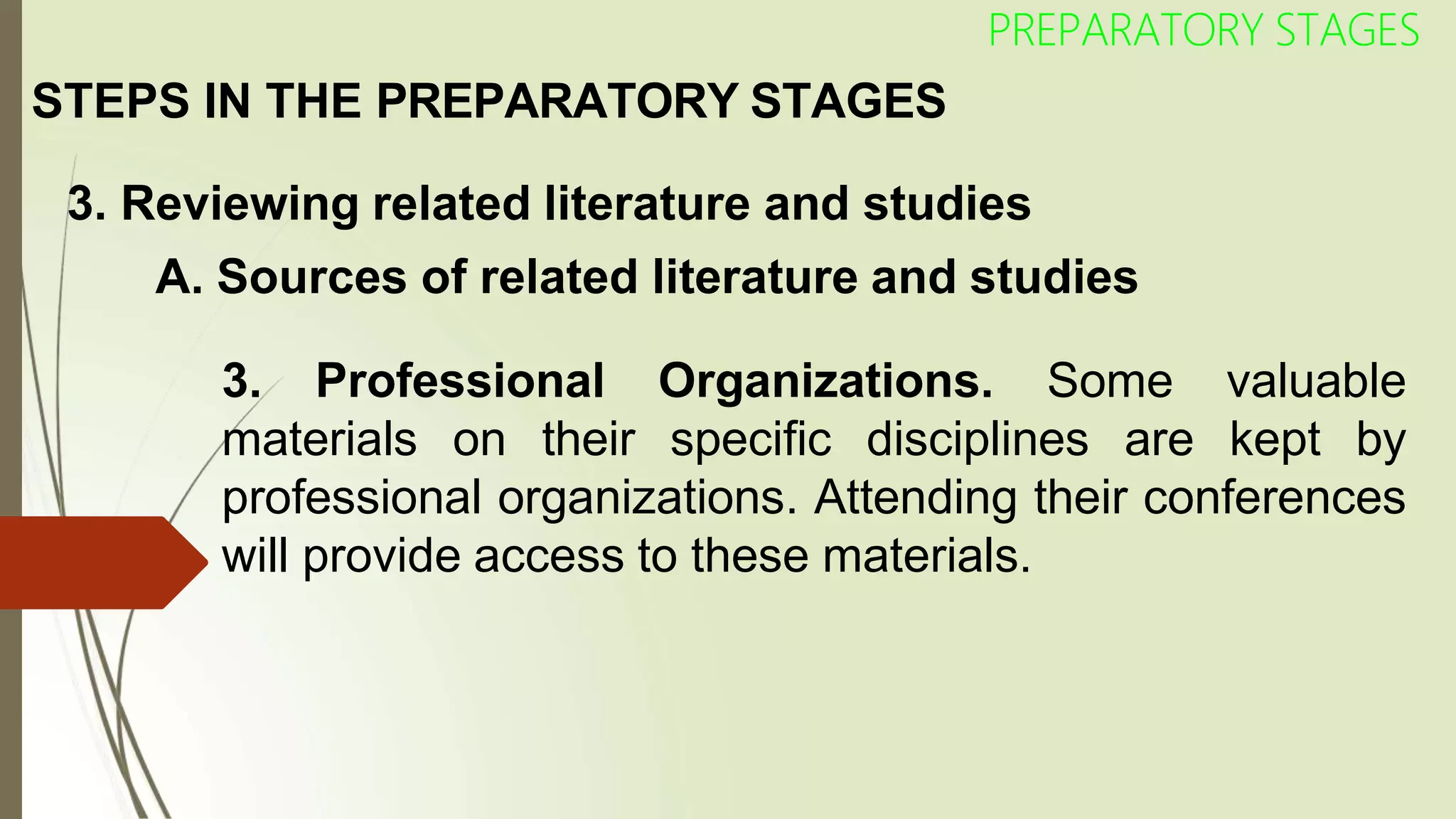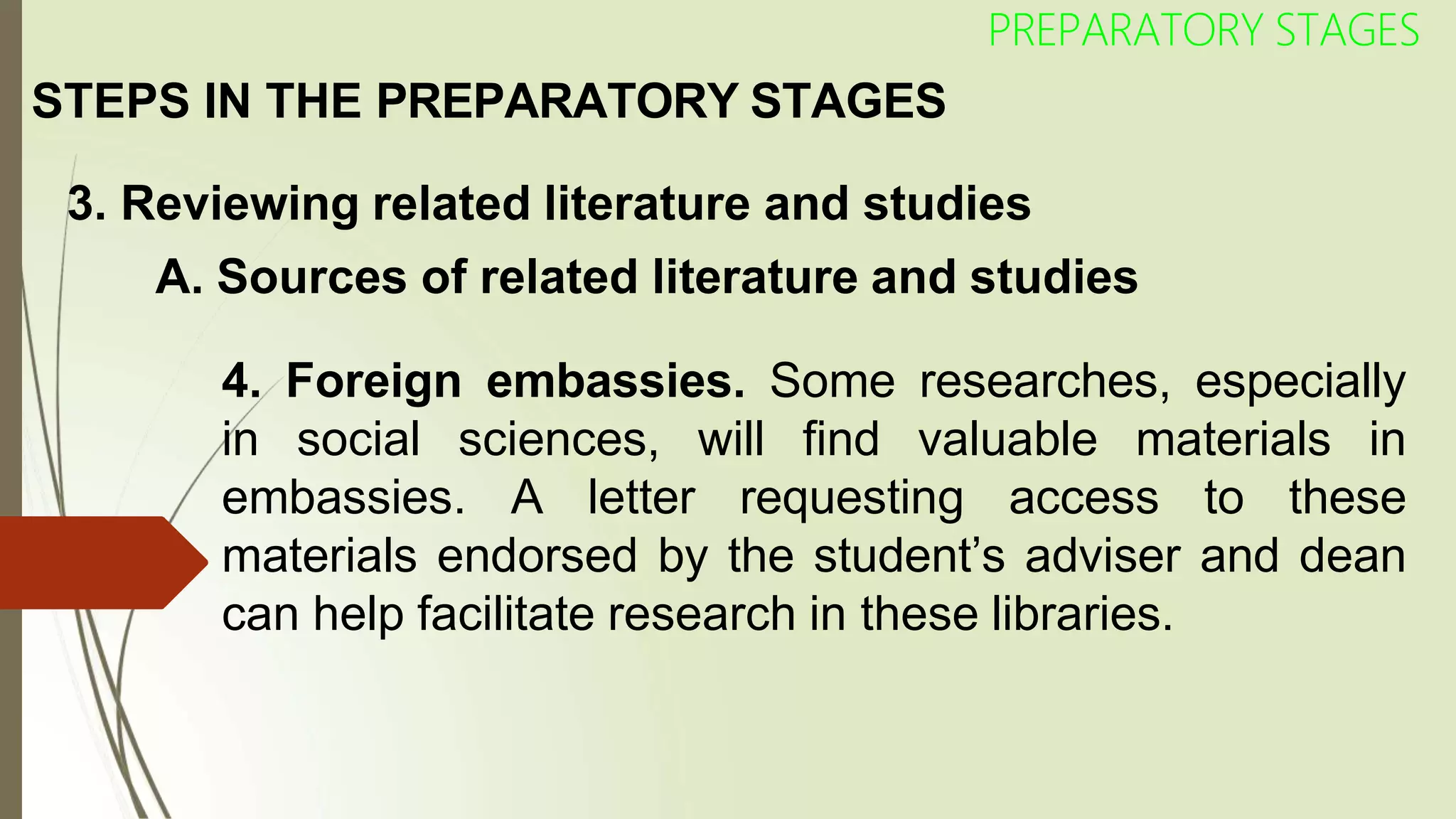Research involves systematically investigating topics through reliable sources to establish facts and reach new conclusions. It is a planned, logical, empirical, and replicable process that examines data to evaluate conclusions. The three major goals of research are to establish facts, analyze information, and reach new conclusions. Researchers select topics from their interests, other studies, or related fields and focus the topic based on feasibility. They formulate general and specific research questions and choose appropriate methodologies like descriptive or experimental designs. A review of related literature and studies helps broaden perspective and focus the research problem.






